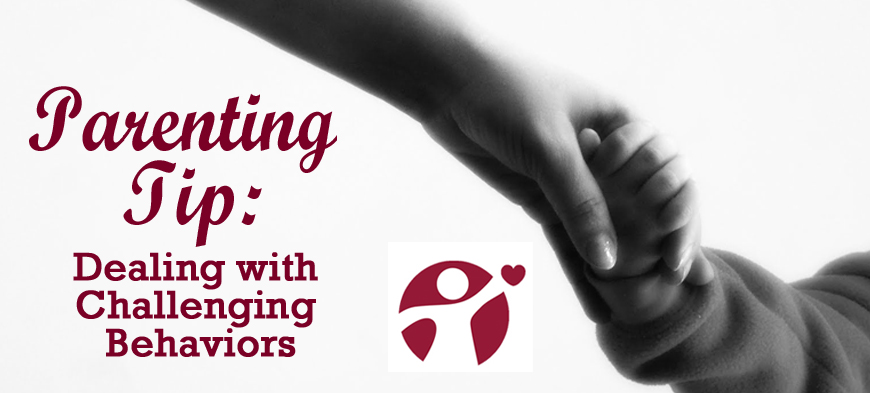Everyone knows that children have a mind of their own. So how do you deal with their challenging behaviors?
According to Leslie Hundt, Curriculum Specialist for Ebenezer Child Care Centers with locations in Downtown Milwaukee, Oak Creek, and West Allis, “As children learn more about the world around them and want to exert more independence, parenting definitely becomes more complex.”
Here are tips to help you through.
Provide Choices
Children are continually working toward independence. Hundt suggests that you offer choices to avoid challenging behaviors.
“Instead of simply serving orange slices with breakfast, ask your children if they would like apple slices or orange slices. Both are healthy options that you approve of, so this is a perfect opportunity to give your children control over their own choices.”
Other opportunities for you to provide choices for your children include laying out two outfits for the day and letting your children pick one; having your children choose which cup they want to use with each meal; and allowing them to choose what stories they want you to read at night. When you provide your children with choices, they feel a sense of empowerment, and you experience fewer behavioral issues.
Use Your Words
Each time a challenging behavior arises, try to remember that young children are working hard on developing their language skills. It is important to remind your children that they need to slow down and use words when temper tantrums or challenging behaviors arise.
Hundt says, “Phrases such as ‘I can help you better when you use your words,’ or ‘I understand words better than crying,’ or ‘In our family we use our words when we are angry,’ remind children of the importance of communicating verbally.”
Your children may not know which words to use. In these situations, guide them. Instead of crying when they need more juice, tell them “Say: More juice.” Ask them to repeat this to you. Confirm that you understand. “Now I know what you need, because you told me with words.” When you give your children words to use (not whining and crying) and tell them you understand, this reinforces the benefits of using words.
Stay Calm and Use Empathy
Hundt says, as difficult as it might be, as the adult, you need to stay calm when your children display any challenging behaviors and empathize with them.
“Help your children recognize why they are feeling the way they do, and teach them how to manage their emotions. One way to do this is by talking with your children about emotions whenever the opportunity arises. If you are reading stories together, watching TV, or even out in public and see an emotion being displayed, use these opportunities to put names to emotions and talk about how to manage big emotions.
In that regard, Hundt reminds us to remember that your children will mimic what they see around them. Be mindful of the actions they are seeing. When they see an adult do something, they think it is okay. In their eyes, what adults do must be right. So, if an adult does it, it is okay for me to do it.
Finally, Hundt says to remember this is a life-long journey.
“As your children get older, challenging behaviors and situations will change. If you teach them from the start that they have choices and how to make good choices; how to talk to people and verbally work out differences; and how to remain in control of their emotions, they will be more prepared to manage any challenging circumstances they encounter.”
Every Ebenezer Child Care Center focuses on all aspects of a child’s development: cognitive, physical, emotional, and social. In addition to providing quality care, the agency also offers other educational programming all aimed at helping parents.
The agency has locations in downtown Milwaukee, Oak Creek, and West Allis. The agency’s main office is located at 1138 S. 108th Street, West Allis, WI. For more information, please call 414-643-5070.

